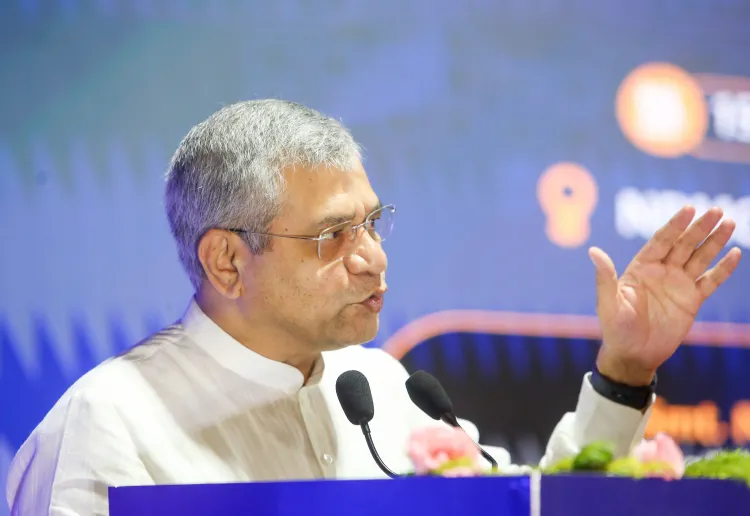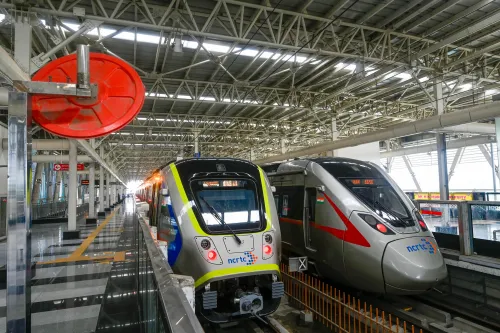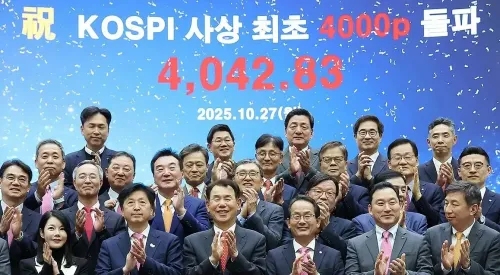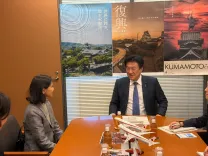Are Global Chip Design Giants Flocking to India?

Synopsis
Key Takeaways
- India's skilled talent pool is attracting global semiconductor firms.
- The Semiconductor Mission aims to build a strong talent pipeline.
- ARM is setting up operations for advanced chip design in Bengaluru.
- 278 universities are supported to enhance EDA tool access for students.
- The India Deep Tech Fund has been initiated with $1 billion for tech innovation.
New Delhi, Sep 16 (NationPress) Union Minister for Railways, Information & Broadcasting, and Electronics & IT, Ashwini Vaishnaw, stated on Tuesday that India's expanding pool of skilled talent is luring numerous global semiconductor design firms. Speaking during the launch of chip design powerhouse ARM's new office in Bengaluru, the minister emphasized that a primary objective of the Semiconductor Mission has been to cultivate a robust and extensive talent pipeline, and this initiative is now yielding positive outcomes.
“One of the significant aims of the semiconductor mission is to develop a profound talent pipeline, which is evident from the influx of global design companies into India due to the available talent,” Vaishnaw remarked.
The minister noted that the Semiconductor Mission is currently supporting 278 universities and institutions nationwide, granting students access to cutting-edge EDA tools for chip design.
“To date, 28 chips have been designed by students. This showcases the confidence that international semiconductor firms place in India,” he added.
Vaishnaw also announced that ARM will develop advanced chips, including two-nanometer (2nm) chips, from its new Bengaluru facility.
He commended ARM and its team for selecting India as a center for such innovative endeavors.
The minister observed that ecosystem partners, including suppliers of chemicals, gases, substrates, and manufacturing tools, are establishing operations in India.
Simultaneously, design capabilities are rapidly advancing, with numerous design-linked incentive (DLI) companies receiving support from venture capitalists.
Vaishnaw further disclosed that the government has initiated the India Deep Tech Fund, commencing with $1 billion, aimed at fostering innovation in artificial intelligence, semiconductors, biotech, and various other high-tech industries.
Looking forward, the minister mentioned that the forthcoming Version 2.0 of the Semiconductor Mission will prioritize the development of necessary equipment and materials for chip manufacturing, alongside design and fabrication.
“We are concentrating on the entire semiconductor ecosystem -- from designing chips to manufacturing them, constructing the equipment and materials involved in their production, and developing a skilled talent pipeline. The progress is promising, and this is merely the beginning,” he concluded.










